⚜ ⚜ ⚜ ⚜ ⚜ ⚜ ⚜ ⚜ ⚜ ⚜ ⚜ ⚜ ⚜ ⚜ ⚜ ⚜ ⚜ ⚜ ⚜ ⚜ ⚜ ⚜ ⚜ ⚜ ⚜ ⚜ ⚜ ⚜⚜ ⚜ ⚜ ⚜ ⚜ ⚜ ⚜ ⚜ ⚜ ⚜ ⚜ ⚜ ⚜ ⚜ ⚜ ⚜ ⚜ ⚜ ⚜ ⚜ ⚜ ⚜ ⚜ ⚜ ⚜ ⚜ ⚜ ⚜⚜ ⚜ ⚜ ⚜ ⚜ ⚜ ⚜ ⚜ ⚜ ⚜ ⚜ ⚜ ⚜ ⚜ ⚜ ⚜ ⚜ ⚜ ⚜ ⚜ ⚜ ⚜ ⚜ ⚜ ⚜ ⚜ ⚜ ⚜⚜ ⚜ ⚜ ⚜ ⚜ ⚜ ⚜ ⚜ ⚜ ⚜ ⚜ ⚜
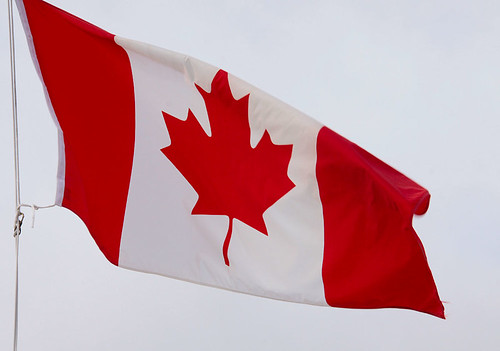
Photo courtesy of waferboard's Flickr page - Canadian flag: https://www.flickr.com/photos/waferboard/5653240459
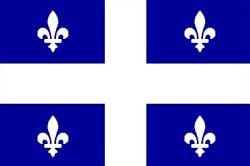
Photo courtesy of Kyle MacDonald - Quebec_flag: https://www.flickr.com/photos/kylemacdonald/66650789/in/photolist-6TAXx-6PByUt-o8KnGq-4qPhBC-5ayiie-dCfaHU-4YWgTR-6PBuWD-6PBv3k-8874k4-36C9nK-4Z1xFE-7VsSSh-5CVqmf-qnS9jk-3nYz4N-5uNoVP-8bGnfH-cqskgq-5pjedd-dfMmsL-4UK1Et-9t8Dvq-6ZxwKV-brZuEu-6zaCBc-5iPhim-9Qpwe1-4q3mX4-5Crg5U-3Da8ic-4sAr6C-8f6xSg-5hF28N-6BXydy-5huVVF-wwDQK-fwsa8H-5H9Tr5-5aCvVE-5ayg9T-5aCvBs-6Qskwq-cGmdvJ-4zYTWw-bDn7n-4qLneS-3bx179-ajGUD1-8acMDC
Creative Commons License: https://creativecommons.org/licenses/by/2.0/

I will begin a series of posts honoring Canada, our neighbors to the north. In case you were not aware, this year, 2017, is a year to travel to Canada!
Why?
Well, first of all, because it is an absolutely beautiful country! Trust me, I have traveled fairly extensively within Canada, having visited six provinces, and have gotten a taste of the natural and architectural beauty of the country, as well as the diverse set of experiences that you can find there. Yes, I have soaked in the Old World style architecture of Vieux Québec and Vieux Montréal on foot, or sometimes sitting at a peaceful sidewalk cafe, and have even enjoyed tea time in Victoria, British Columbia.
But why would 2017 be the year to make a trip up to Canada? Well, because this year marks the 150th anniversary of Confederation, which essentially is when Canada became less of a British colony, and more of it's own country.
Of course, it could and perhaps should be noted that Canada always seemed to have an identity crisis. Canada has almost always been in the shadow of it's much larger (in terms of population, anyway) and much more powerful neighbor to the south. English Canadians knew that they were not Americans, although they also knew that they were not entirely British, either. They once harbored dreams of becoming the most powerful and influential nation in the British Empire, although that never actually came to pass. Still, they understood that their identity, as a people and as a nation, was different than that of Americans and the British, although it seems to me that they cling more closely to signs of their historical association with Britain, with images of the Queen on their currency, and clear signs of the British monarchy on many of their symbols and in government.
For French Canadians, there never was this kind of identity crisis. The things that make French Canadians, especially Québecois, the things that separated them, that made them different, than the English or Americans were immediately apparent. They have a different language, a different religion, and a distinct cultural identity. They are not completely French in the traditional sense of identifying with the mother country across the ocean, because French Canadians have been in this part of North America now for five hundred years. During that time, they came to create their own identity, separate from that of the people of France, as well as, obviously, English Canadians and Americans. When you cross the border into English Canada, you might know that you are in a different country, but the signs are far more subtle. Maybe the metric system on road signs gives it away (if you are paying attention, or some other small things like that. But when you cross into French Canada, especially the province of Québec, it is immediately apparent that you are in a different country. Every sign is in another language, and even the landscape looks somehow different. The towns are different, with villages that are usually completely dominated by a church with a very tall spire, often in silver. The people, of course, tend to speak French, and many of them speak French exclusively, although I believe that a majority of the Québecois are, in fact, bilingual.
When their are cultural differences somewhere, there usually are also some notable tensions, and Canada is no different. England and France were at war for much of the colonial days, and it was a successful takeover by the British in Québec City during the French and Indian War (also known as the Seven Years War) wound up ultimately deciding the conflict in favor of Britain, and the French presence in North America was largely lost. There was a relatively short period when Napoleon's France took over in Louisiana and parts of the Mississippi Delta, but this was sold off to the Americans in the Louisiana Purchase. For the most part, French Canadians were left on their own after the British took over. However, to try to assure the allegiance of the French in Québec after taking over, the British passed the Quebec Act, which preserved the French language and culture, and the Catholic religion, for those living in Québec. This was a large part of the reason why Americans were not successful when they went up to Québec late in 1775 to try and gain support for their anti-British cause.
French remained the dominant language in Québec and French has been a strong presence in many other places throughout Canada ever since, as well. Outside of Québec province, there are numerous sections of New Brunswick where French is dominant, and other places where it is more or less on equal footing with English. There are also predominately French speaking town in eastern Ontario, and French is very much present in the national capital region of Ottawa. Otherwise, every province has some French speaking communities inside of it, especially some rural farming villages in Manitoba, where they have some strong pockets, and there are pockets of French speaking Acadian fishing villages in each of the Maritime provinces.
Still, it is in Québec, more than any other part of Canada, that you definitely feel a distinct cultural and linguistic difference than in the rest of North America. It is there that the French-speaking presence is strongest, where it is dominant. And it is there where an Old World flavor still prevails, not just along the sidewalk cafes of the cobbled streets of Vieux Québec or Vieux Montréal, but even in smaller, lesser known communities. When you go there, you can sense it, see it, feel it. Sometimes, you can even taste it. And pretty much everywhere you go, you can hear it.
Now, I am not sure that all of this makes Québec happier than any other province. Like all the other provinces, and like the American states, and like everywhere else in the world more generally, there are problems there. Montréal has a lot of homelessness and clear signs of poverty on the streets. There are problems with unemployment, and there is a sense among many here that French is constantly under threat, that this province, although large in size, is relatively small and isolated, and relatively powerless against the crushing presence of the English speaking lands which surround it.

As nice as this city is during the daylight, Quebec by night is even more romantic and (corny as this surely sounds) magical, than it is by day.





The Montmorency Falls

My girlfriend and I at the Île d'Orléans in 2012


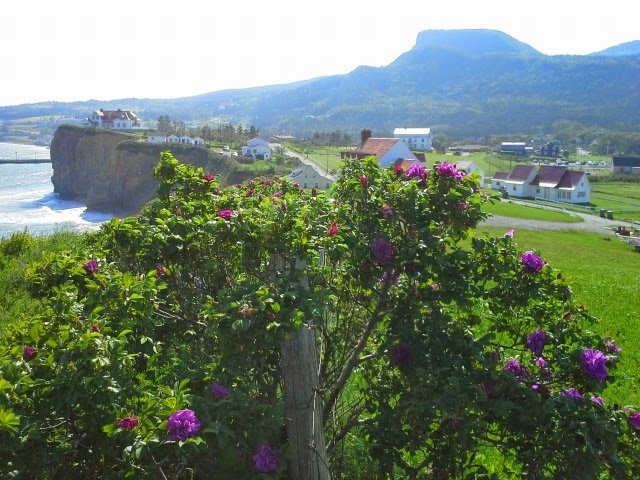
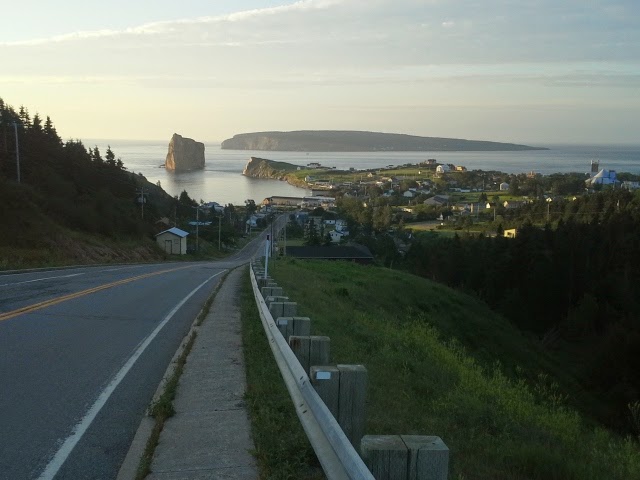
.jpg)
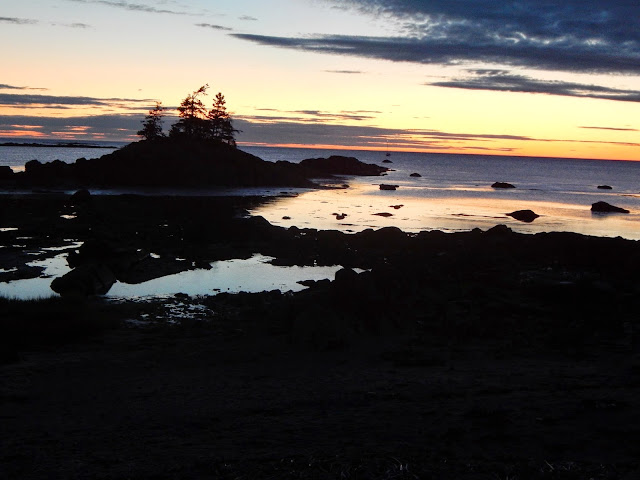
But why would 2017 be the year to make a trip up to Canada? Well, because this year marks the 150th anniversary of Confederation, which essentially is when Canada became less of a British colony, and more of it's own country.
Of course, it could and perhaps should be noted that Canada always seemed to have an identity crisis. Canada has almost always been in the shadow of it's much larger (in terms of population, anyway) and much more powerful neighbor to the south. English Canadians knew that they were not Americans, although they also knew that they were not entirely British, either. They once harbored dreams of becoming the most powerful and influential nation in the British Empire, although that never actually came to pass. Still, they understood that their identity, as a people and as a nation, was different than that of Americans and the British, although it seems to me that they cling more closely to signs of their historical association with Britain, with images of the Queen on their currency, and clear signs of the British monarchy on many of their symbols and in government.
For French Canadians, there never was this kind of identity crisis. The things that make French Canadians, especially Québecois, the things that separated them, that made them different, than the English or Americans were immediately apparent. They have a different language, a different religion, and a distinct cultural identity. They are not completely French in the traditional sense of identifying with the mother country across the ocean, because French Canadians have been in this part of North America now for five hundred years. During that time, they came to create their own identity, separate from that of the people of France, as well as, obviously, English Canadians and Americans. When you cross the border into English Canada, you might know that you are in a different country, but the signs are far more subtle. Maybe the metric system on road signs gives it away (if you are paying attention, or some other small things like that. But when you cross into French Canada, especially the province of Québec, it is immediately apparent that you are in a different country. Every sign is in another language, and even the landscape looks somehow different. The towns are different, with villages that are usually completely dominated by a church with a very tall spire, often in silver. The people, of course, tend to speak French, and many of them speak French exclusively, although I believe that a majority of the Québecois are, in fact, bilingual.
When their are cultural differences somewhere, there usually are also some notable tensions, and Canada is no different. England and France were at war for much of the colonial days, and it was a successful takeover by the British in Québec City during the French and Indian War (also known as the Seven Years War) wound up ultimately deciding the conflict in favor of Britain, and the French presence in North America was largely lost. There was a relatively short period when Napoleon's France took over in Louisiana and parts of the Mississippi Delta, but this was sold off to the Americans in the Louisiana Purchase. For the most part, French Canadians were left on their own after the British took over. However, to try to assure the allegiance of the French in Québec after taking over, the British passed the Quebec Act, which preserved the French language and culture, and the Catholic religion, for those living in Québec. This was a large part of the reason why Americans were not successful when they went up to Québec late in 1775 to try and gain support for their anti-British cause.
French remained the dominant language in Québec and French has been a strong presence in many other places throughout Canada ever since, as well. Outside of Québec province, there are numerous sections of New Brunswick where French is dominant, and other places where it is more or less on equal footing with English. There are also predominately French speaking town in eastern Ontario, and French is very much present in the national capital region of Ottawa. Otherwise, every province has some French speaking communities inside of it, especially some rural farming villages in Manitoba, where they have some strong pockets, and there are pockets of French speaking Acadian fishing villages in each of the Maritime provinces.
Still, it is in Québec, more than any other part of Canada, that you definitely feel a distinct cultural and linguistic difference than in the rest of North America. It is there that the French-speaking presence is strongest, where it is dominant. And it is there where an Old World flavor still prevails, not just along the sidewalk cafes of the cobbled streets of Vieux Québec or Vieux Montréal, but even in smaller, lesser known communities. When you go there, you can sense it, see it, feel it. Sometimes, you can even taste it. And pretty much everywhere you go, you can hear it.
Now, I am not sure that all of this makes Québec happier than any other province. Like all the other provinces, and like the American states, and like everywhere else in the world more generally, there are problems there. Montréal has a lot of homelessness and clear signs of poverty on the streets. There are problems with unemployment, and there is a sense among many here that French is constantly under threat, that this province, although large in size, is relatively small and isolated, and relatively powerless against the crushing presence of the English speaking lands which surround it.

As nice as this city is during the daylight, Quebec by night is even more romantic and (corny as this surely sounds) magical, than it is by day.





The Montmorency Falls

My girlfriend and I at the Île d'Orléans in 2012


Île-Bonaventure
Le Rocher Percé

Rocher Percé and Île-Bonaventure

.jpg)
Sunset on the St. Lawrence














.jpg)
No comments:
Post a Comment